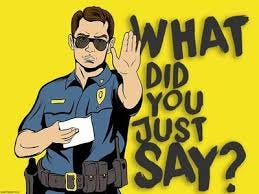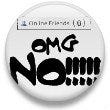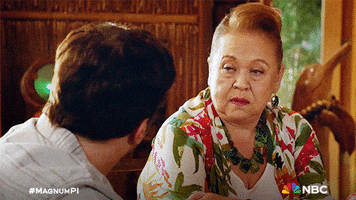Language
The way we use language has been my beat for years. I started blogging on mental health issues in 2009 at ProzacMonologues.com. That meant I was reading things that scientists and psychiatrists wrote about people with mental illness. People like me.
I am a cross-cultural kinda gal, and boy, was this crossing! I started an award, the Oh My God, That’s What They Said! Award. It highlighted words and phrases that I found in scientific research and professional magazines. Words like noncompliance, unfortunate complications, successful suicide, and failed attempt. I explored the mindset behind those words, what blind spots they exposed, and how they influenced behavior.
You’d think that people in the world of neuroscience would understand the words they use make a difference, and they ought to watch their mouths. For those working, writing, or speaking in these circles, people with mental illness are always them. It doesn’t occur to doctors and scientists that they might be talking about some of their own peers, or that anybody else might be looking over their shoulder.
My bad, I guess, for reading things not meant for my eyes.
My point is not that their words cause offense. It is that these words and phrases limit their thinking, distort their observations, and lead to harm, intended or not.
Mental Illness
Anyway, that was right after my brain blew up and I wasn’t leaving the house. My only connection to the world was my laptop. Later, as I got further into my recovery, I left my Prozac Monologues cocoon, and discovered how other people on the internet and in real life use words. The weather is bipolar, national policies are schizophrenic, people with whom the speaker disagreed are psychotic.
Even in church. I heard that language in the pulpit. I would be sitting in the pew right in front of them and they would say things like that.
That’s when I joined the language police. Oh, I am polite. I know these offenders, and I know their intentions are not hostile. But prejudice against mental illness is so ingrained in our culture that we don’t even recognize it coming out of our own mouths. My colleagues do not understand the signals they are giving to their parishioners—that the clergy are not safe and that the mentally ill are not welcome.
This use of mental illness diagnoses as pejoratives has come at us like a tidal wave in political discourse for the last eight years. And, yeah, I get it. It is hard to find the right words to describe these extreme politicians and their extreme policies.
But it’s not that hard.
Think, people. Do better. There are people out here who overhear you.
Those of us who have bipolar disorder or schizophrenia, those of us who have experienced psychosis are tired of being compared to people you don’t like.
And by the way, you reveal your ignorance about mental illness when you use those words instead of other more accurate words like strange, confusing, offensive, violent, cruel, incomprehensible, and reprehensible.
There. Remember that one? That’s how we hear you.
The Politics of Weird
So what about weird?
Weird is the new word. And I like it. With one caveat, I suppose.
The Cambridge Dictionary defines weird as “very strange and unusual, unexpected, or not natural.” Google Books tracks how often it appears in literature, and since this century, its growth is exponential. Google’s chart goes only as far forward as 2019. I’m setting an alert in my phone to check on the stats six years from now to see what effect this year’s political campaign will have on literature.
Now, the word has been flung as a pejorative at neurodiverse people and people who argue out loud with their inner voices on city buses. So some people question its use in the current US political campaign.
The Caveat
Not a big fan of name-calling myself. That would be my caveat. It indicates a paucity of clear thinking and immense childishness.
But I confess, I’m not that bothered this time
Two differences between weird and psychotic as perjoratives:
First, weird is not a DSM category. It is not the psychiatric diagnosis. It does not implicate people who are suffering in very specific ways. Instead it means very strange and unusual, unexpected, or not natural.
Which, fair play.
The notion that people who do not bear children do not have a physical stake in the future of the US—yes, that’s weird. As Pete Buttigieg recently stated, when he was under rocket attack in Afghanistan, his stake in the future of the US felt pretty physical. Firefighters, police officers, teachers. . .
The notion that men who think a zygote implanted in a fallopian tube can be transplanted into a uterus—that these men should make medical decisions for anyone who has fallopian tubes and a uterus—yes, that’s weird too.
Second, and this is a crucial difference, the political use of weird when applied to people in power is quite different from its use against neurodiverse people. Here it is punching up, not down.
What we see happening, at long last, is the bullies getting a taste of their own medicine. And it is bitter or joyous, depending on which way it hits.
More to say
I could go on—
How weird is it that the party of family values wants…
How sorrowful is it to watch so many Christians want…
How do we get beyond demonizing the enemy…
How do we find another way…
But then what would I write next week?
Really and truly, I want to hear your thoughts.







These are definitely weird times we are living in. The hysteria (knowing the history of the word and how it was used against women, I use it against-) of conservatives getting upset by a French Olympic opening ceremony and accusing a female boxer of not being female enough for their liking, and etc and etc (I’m one of those childless cat ladies, after all) it is all just weird!
MacBeth refers to the three witches thusly: Saw you the weird sisters?